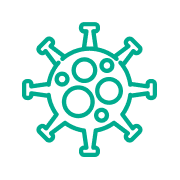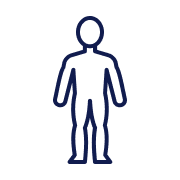
AQP4+ NMOSD has also been associated with specific human leukocyte antigen (HLA) alleles, as well as other autoimmune disorders such as systemic lupus erythematosus.1,2 Additional risk factors that have been suggested to play a role in NMOSD include smoking and infections.1,2








AQP4-IgG positive NMOSD often coexists with other autoimmune diseases, such as Sjögren’s syndrome, systemic lupus erythematosus or myasthenia gravis (MG).1,3,4 The reason these diseases occur together is unclear, but it could be related to a predisposing genetic background, environmental factors or shared pathological mechanisms.4 Patients with NMOSD can also have other non-autoimmune diseases, such as diabetes, hypertension and cardiovascular disease.4 A study examining the frequency of comorbidities among individuals with NMOSD also noted that psychiatric disorders – such as general anxiety disorder and major depressive disorders – were more common in NMOSD patients, possibly due to the chronic neuropathic pain and fatigue.5 It has been suggested that some of the non-autoimmune comorbidities, such as hyperglycemia and diabetes, could result from corticosteroid treatment of NMOSD used to suppress inflammation during relapses.4
AQP4, aquaporin-4; HLA, human leukocyte antigen; IgG, immunoglobulin G; IL17A, interleukin 17A; MG, myasthenia gravis; NMOSD, neuromyelitis optica spectrum disorders.

healthcare professional
